A primer highlighting the development of Insurgent/Alt Country music, meaning the genre that blended country with punk, alternative rock and the like. While primarily a phenomenon of the 1990s and early 2000s, it can be traced further back, and its roots extend even further back into the closely related but still somewhat different “country rock” genre. It tends to appeal to more urban and middle-class audiences than other types of country, and might even be called the “gentrified” version of country music.
Roots and Influences:
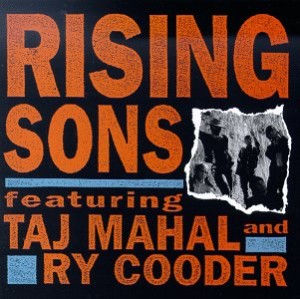 |
Rising SonsRising Sons featuring Taj Mahal and Ry Cooder (1992)One of the earliest country rock bands. They didn’t record much, and released almost nothing during their existence. Nonetheless, a talented group that influenced many through their live performances. |
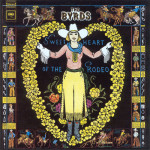 |
The ByrdsSweetheart of the Rodeo (1968)Not the first country rock album (at the least, International Submarine Band beat them to it). But this remains the most popular early country rock album. |
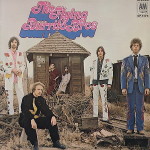 |
The Flying Burrito BrosThe Gilded Palace of Sin (1969)Probably the pinnacle of the country rock genre. Note that Gram Parsons is starting to be involved with a lot of these albums. |
 |
Grateful DeadWorkingman’s Dead (1970)The Grateful Dead took a surprising turn with Workingman’s Dead and developed a bluegrass and country inflected sound. They played a key role through the years in maintaining an interest in country music amongst rock audiences. |
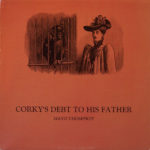 |
Mayo ThompsonCorky’s Debt to His Father (1970)A completely left-field effort, that is as much or more “folk” and “rock” than country. Thompson also was in the Band Saddlesore, which released one single (“Old Tom Clark” / Pig Ankle Strut”) that is a candidate for the very first insurgent country release. |
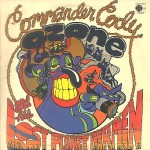 |
Commander Cody and His Lost Planet AirmenLost in the Ozone (1971)Though Commander Cody and His Lost Planet Airmen tend to be associated primarily with the “outlaw country” movement, songs like their version of “Hot Rod Lincoln” were starting to inject a little more crazed rock ‘n roll energy into country rock. |
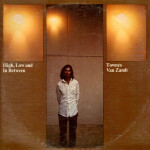 |
Townes Van ZandtHigh, Low and In Between (1972)Townes Van Zandt is probably the earliest example of the attitudes and sentiments that would dominate much of the golden age of alt/insurgent country. Much of his material is fairly called straight country, or at times even of a folky singer-songwriter variety, but on High, Low and in Between he started using more rock-oriented instrumentation. |
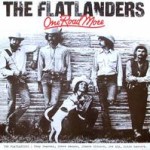 |
The FlatlandersOne Road More (1980)The Flatlanders took what Townes Van Zandt suggested and ran with it. They paired a more retro early country flavor (think Carter Family era) with a lyrical sensibility that suggested they were also listening to the psychedelic rock the hippies were playing. Their first recordings didn’t see a proper release for eight years, after member Joe Ely had hooked up with The Clash — which is a testament to how the sensibilities of insurgent country represented the common ground between rural folk and urban counterculture of the punk era. |
 |
Linda RonstadtDon’t Cry Now (1973)It would be unfair to ignore the contributions of both mainstream acts and female artists to country rock. Linda Ronstadt blended country with pop (and rock) into a smooth, professional “L.A.” sound that bore many similarities to later insurgent country acts like The Jayhawks, Cowboy Junkies and even Alejandro Escovedo, particularly through an emphasis on detached expressions of personal identity in music that rarely appeared in “straight” country. |
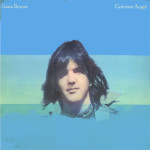 |
Gram ParsonsGrievous Angel (1974)Gram Parsons was all over many of the earliest country rock albums. His contributions, both solo and in various groups, cleared a space in which the foundations of insurgent country were laid. He had a well-heeled, if somewhat troubled upbringing, and was something of a problem child who strayed from the most probable career path his elitist educational background would suggest, which actually says a lot about the social milieu that developed and gravitated toward country rock, etc. |
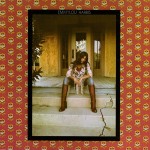 |
Emmylou HarrisElite Hotel (1975)Emmylou picked right up where the late Gram Parsons left off, and brought an even more exquisitely sensitive voice to achy, twangy American folk music played over rock rhythms. |
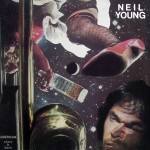 |
Neil YoungAmerican Stars ‘n Bars (1977)Coming within a stone’s throw of insurgent country is this “black sheep” of the Neil Young catalog. It’s not all country, but the parts that are inject a particular type of bleary, raucous rock sensibility that would carry forward into the actual insurgent country era. |
Insurgent/Alt Country:
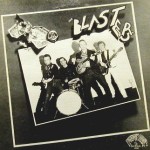 |
The BlastersAmerican Music (1980)Although not exclusively “insurgent country” in sound, The Blasters were part of the earliest efforts to bring the energy of punk together with country music. Many L.A. groups were involved with the evolution of the music. American Music was one of the first examples of a recording you could start to clearly differentiate from country rock. |
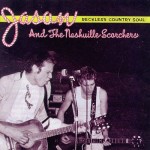 |
Jason & The ScorchersReckless Country Soul (1982) [EP] |
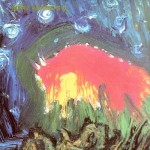 |
Meat PuppetsMeat Puppets II (1984)Further efforts to explore country music alongside punk and psychedelic influences. |
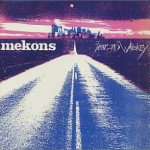 |
MekonsFear and Whiskey (1985)Punk legends the Mekons delved into what some call “cowpunk”. |
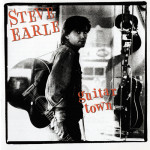 |
Steve EarleGuitar Town (1986)Sort of the curmudgeon of the genre, Steve Earle also is frequently cited as one of its best songwriters. After some substance abuse problems, he bounced back in the 1990s during the heights of the movement (I Feel Alright, etc.). |
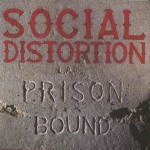 |
Social DistortionPrison Bound (1988)Not as talented as songwriters or performers as many other alt-country types, Social Distortion still did connect a lot of punk rockers with country influences. |
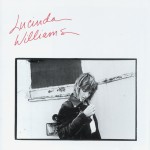 |
Lucinda WilliamsLucinda Williams (1988)Lucinda Williams was one of the more critically acclaimed singer-songwriters of the golden age of alt country. Her self-titled album from 1988 helped introduce country trappings to a “college rock” audience; later albums like Car Wheels on a Gravel Road (1998) were even better. |
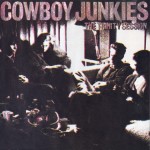 |
Cowboy JunkiesThe Trinity Session (1988)Insurgent/alt country was for the most part under the radar through the 1980s. But Cowboy Junkies definitely raised its profile. The more pop leanings of the group helped in that regard. |
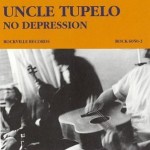 |
Uncle TupeloNo Depression (1990)Although by no means the group’s best album (that would probably be Anodyne), No Depression really was the clarion call for the golden age of insurgent country. Band members Jeff Tweedy and Jay Farrar later went on to form other influential groups. The name of the album comes from a song (“No Depression in Heaven”) popularized by The Carter Family, and the leading magazine of the genre took the same name. From this point on there was no denying that there was a broad and distinct “insurgent country” movement underway. |
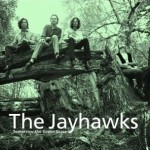 |
The JayhawksTomorrow the Green Grass (1993)The Jayhawks were one of the more polished alt country groups. Like The Blasters, their interests went beyond just country, but The Jayhawks had a more mellow pop sound. |
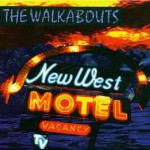 |
The WalkaboutsNew West Motel (1993) |
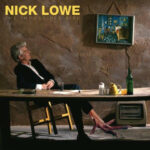 |
Nick LoweThe Impossible Bird (1994) |
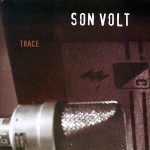 |
Son VoltTrace (1995)Jay Farrar started Son Volt after the breakup of Uncle Tupelo, and carried on with a similar sound. |
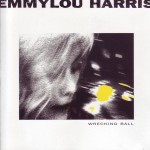 |
Emmylou HarrisWrecking Ball (1995)Emmylou moved away from Gram Parsons-style country rock toward more straight country in the 1980s, but then made a comeback within the insurgent country fold in the mid-1990s. |
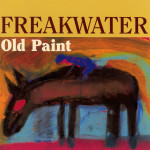 |
FreakwaterOld Paint (1995)Freakwater focused on “old timey” country, with more modern lyrical sensibilities. |
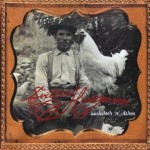 |
Sixteen HorsepowerSackcloth ‘n’ Ashes (1996)16 Horsepower played goth country. |
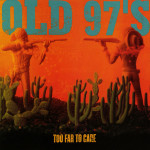 |
Old 97’sToo Far to Care (1997)Old 97s were one of the most loved insurgent country groups among audiences traditionally associated with “college rock”. They were capable of better songwriting than most. |
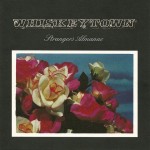 |
WhiskeytownStrangers Almanac (1997)Led by Ryan Adams, Whiskeytown brought smooth pop and “heartland” rock sounds into the fabric of country music, with a laid-back demeanor but still capable of rocking a little harder too. Adams went solo in short order. Strangers Almanac was one of the more accomplished album-length statements in the genre. |
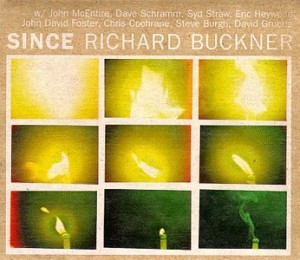 |
Richard BucknerSince (1998) |
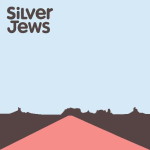 |
Silver JewsAmerican Water (1998)Among the more left field alt country groups (a territory also inhabited by Calexico and others), Silver Jews were sort of like country plus krautrock. |
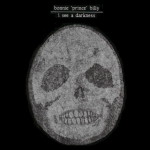 |
Bonnie ‘Prince’ BillyI See a Darkness (1999)Will Oldham, a/k/a Bonnie “Prince” Billy, was another of alt country’s oddballs. He makes clear the connections between that genre and indie rock. |
 |
[Various Artists]Exposed Roots: The Best of Alt. Country (1999)
|
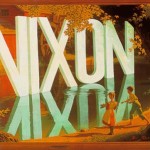 |
LambchopNixon (2000)Lambchop are somewhat of an oddity, not clearly aligned with the insurgent country movement, but present throughout it. Kurt Wagner’s enigmatic vocals have made them a favorite of fans lucky enough to discover the group. |
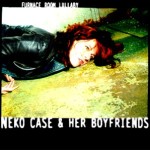 |
Neko Case & Her BoyfriendsFurnace Room Lullaby (2000)Neko Case arrived during the height of the insurgent country movement, and won over a lot of fans with her voice and songwriting. Her later material is more indie rock than country though. |
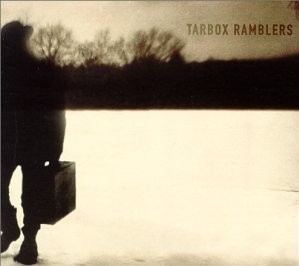 |
Tarbox RamblersTarbox Ramblers (2000)A sometimes overlooked gem from sort of the tail end of the insurgent country golden age. |
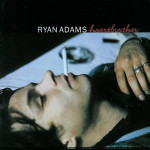 |
Ryan AdamsHeartbreaker (2000)Though perhaps fame went to his head, Ryan Adams was surely among the better songwriters of the alt country world. Heartbreaker is indicative of much of the last throes of the golden age of alt country, with more slower tempos and torch songs. He would, however, still occasionally kick things up a notch, as he did later on Jacksonville City Nights, for instance. |
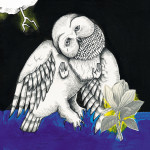 |
Songs: OhiaThe Magnolia Electric Co. (2003)As insurgent/alt country shifted further towards a twangy version of indie rock, few acts had the earnestness, pathos or songwriting abilities of Jason Molina and Songs: Ohia — a band that subsequently assumed the name of this album. |
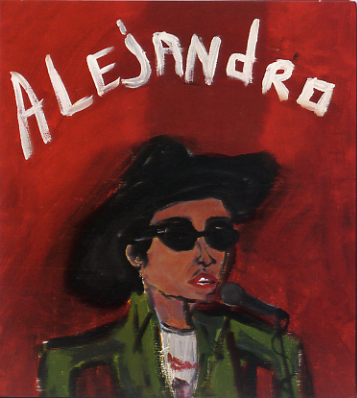 |
Alejandro EscovedoPor Vida (2004)Alejandro Escovedo was named by insurgent country magazine No Depression as the musician of the decade in the 1990s. It’s a fitting title, as he was one of the most talented and consistent voices of the movement. His studio albums have tended to fall a bit short of the energy of his live performances, though Por Vida comes closest to the feel of his shows — which were hardly ever the same twice. It bears mentioning that one of Alejandro’s studio albums like Thirteen Years, Gravity, or A Man Under the Influence might be a better starting point though. |
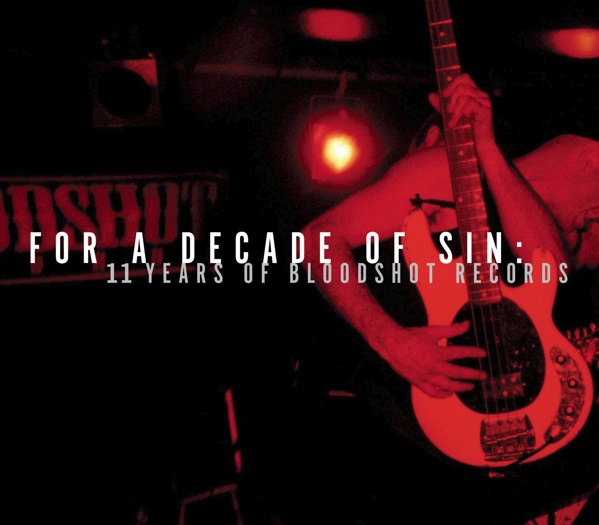 |
[Various Artists]For a Decade of Sin: 11 Years of Bloodshot Records (2005)
|
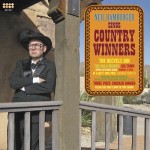 |
Neil HamburgerNeil Hamburger Sings Country Winners (2008)A joke, surely, but a meta-joke above all. This is the country album William Shatner never made. |
